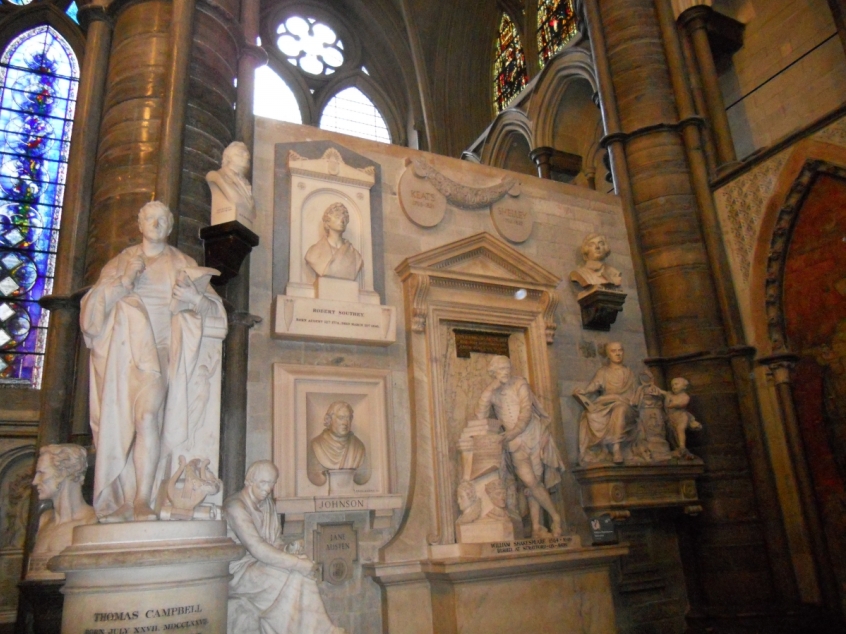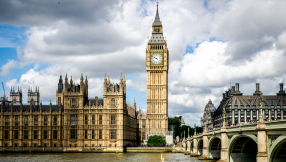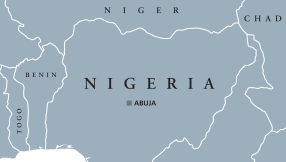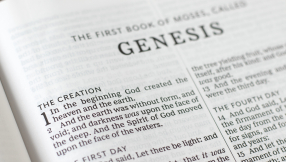It's World Poetry Day, the annual celebration of what UNESCO calls 'one of humanity's most treasured forms of cultural and linguistic expression and identity'. It was UNESCO that first promoted March 21 as a day for poems and poets, back in 1999, and it's gone from strength to strength ever since.

Poems – rhymed or unrhymed, strictly metrical or seemingly random, long or short – can be wonderful glimpses into another person's mind. They can capture a tiny snapshot of nature or human experience, or a deep insight into eternal truth – and sometimes both. Throughout history, Christians have taken to poetry to express their vision of God. Here are five Christian poems you should read.
1. The Pulley, George Herbert (1593-1633)
When God at first made man, Having a glass of blessings standing by, 'Let us,' said he, 'pour on him all we can. Let the world's riches, which dispersèd lie, Contract into a span.'
The poet and Church of England clergyman imagines God pouring out strength, beauty and every blessing on human beings – except rest, because that discontentedness might bring him to seek God. 'If goodness lead him not, yet weariness/ May toss him to my breast.'
2. Paradise Lost, John Milton (1608-1674)
Of Man's First Disobedience, and the Fruit Of that Forbidden Tree, whose mortal tast Brought Death into the World, and all our woe, With loss of Eden, till one greater Man Restore us, and regain the blissful Seat, Sing Heav'nly Muse...
Everyone agrees John Milton is one of England's greatest poets but he's not much read today, not least because his greatest work, Paradise Lost, is so long – 12 dense books, with all sorts of biblical and classical references. But it's an extraordinary retelling of the story of the Fall, complete with wars in heaven and an unforgettable portrait of Satan. Read at least the first two books.
3. The Kingdom of God (in no strange land), Francis Thompson (1859-1907)
O world invisible, we view thee, O world intangible, we touch thee, O world unknowable, we know thee, Inapprehensible, we clutch thee!
An opium addict and vagrant for much of his life, some of Thompson's poems are wonderful. In this one he speaks of God's nearness even in the darkest and most difficult times – the angels on Jacob's ladder, 'Pitched betwixt Heaven and Charing Cross' and 'Christ walking on the water/ Not of Gennesareth, but Thames!'
4. The Journey of the Magi, TS Eliot (1888-1965)
A cold coming we had of it, Just the worst time of the year For a journey, and such a long journey: The ways deep and the weather sharp, The very dead of winter...'
TS Eliot was arguably the greatest poet writing in English in the 20th century, with poems like The Waste Land and Four Quartets part of his legacy. In this one, he reflects on the strangeness of the Magis' encounter with the child Jesus and their struggle to understand what they have seen:
'We returned to our places, these Kingdoms, But no longer at ease here, in the old dispensation, With an alien people clutching their gods...'
5. Ballad of the Bread Man, Charles Causley (1917-2003)
Mary stood in the kitchen Baking a loaf of bread. An angel flew in through the window. 'We've a job for you,' he said.
Charles Causley was a Cornish poet and schoolmaster whose work is deceptively simple and direct. In this one he reflects on the domestic Annunciation and what it would have meant for Mary and Joseph ('The old man's past it, the neighbours said/ That girl's been up to no good.' The Magi are a bishop, a five-star general and 'the head of an African country/ In a bullet-proof limousine.' Jesus offers the people bread they don't want; 'They rigged a trial and shot him dead/ They were only just in time.' The last verse is achingly sad.
6. The Burning Bush, Norman Nicholson (1914-1987)
When Moses, musing in the desert, found The thorn bush spiking up from the hot ground...'
Norman Nicholson was rooted in the north-west mining village of Millom in Cumbria. In this poem he reflects on the burning bush and how Moses 'faced the fire and knew it for his God'. We sometimes do the same, but rationalise the experience and turn away. His last lines are a challenge: 'It's dogma too, or you make God a liar/ The bush is still a bush, and fire is fire.'
Follow Mark Woods on Twitter: @RevMarkWoods













